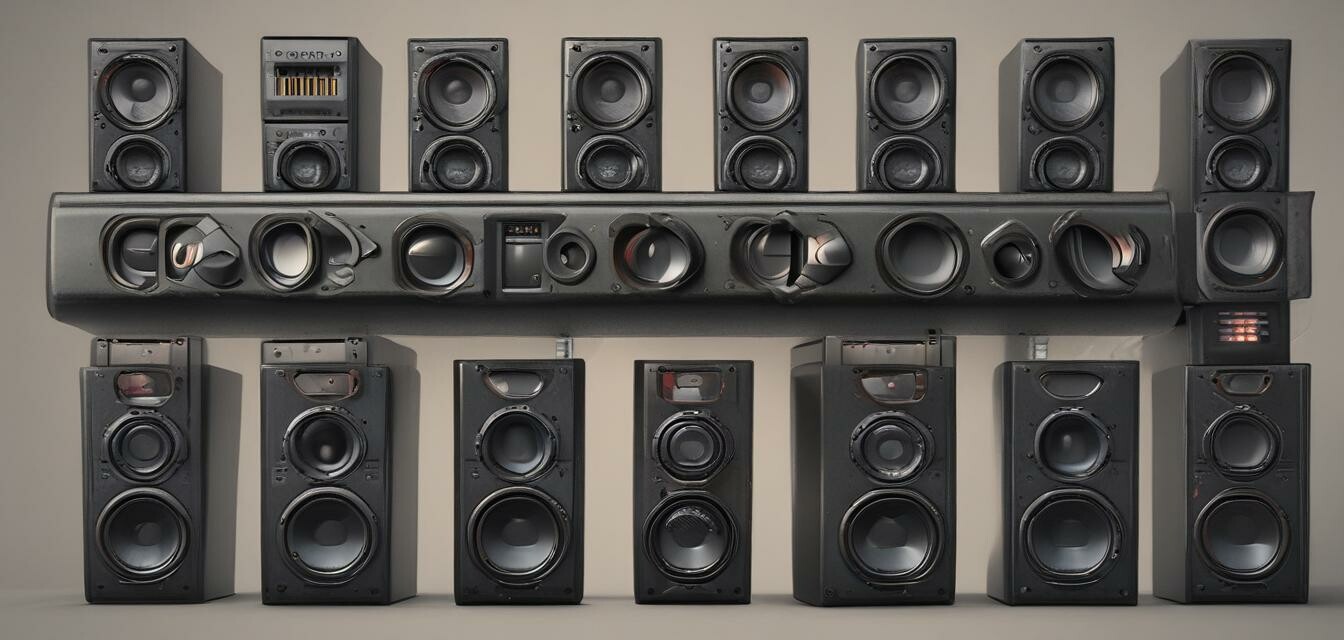
The Evolution of Subwoofers: From Basics to Premium
- The subwoofer has undergone significant changes in design and technology over the years.
- Modern subwoofers offer enhanced sound quality, connectivity, and portability.
- Understanding the evolution aids in making informed purchasing decisions.
- Future trends include smart technology integration and improved sound dimensions.
Subwoofers have become an essential part of the home audio experience, providing deep, rich bass that enhances music and movie soundtracks. This article takes you on a journey through the evolution of subwoofers, exploring how they have transformed from basic models to premium devices that are now common in homes and theaters.
The origins of subwoofers
The history of subwoofers dates back to the late 1960s when engineers began to recognize the importance of low-frequency sound reproduction. Early subwoofers were large, bulky, and often lacked the finesse of modern designs. However, they laid the groundwork for the innovations that followed.
Key developments in the early years
| Year | Development |
|---|---|
| 1960s | Introduction of the first standalone subwoofers for home audio systems. |
| 1970s | Use of passive and active subwoofer systems begins to gain popularity. |
| 1980s | Introduction of electronic crossover technology for better sound control. |
The rise of powered subwoofers
Throughout the 1980s and 1990s, powered subwoofers became increasingly common. These units incorporated built-in amplification, freeing users from the need for external amps. This advancement made installation easier and allowed for optimized performance.
Benefits of powered subwoofers
- Compact design eliminates bulky external amplifiers.
- Improved performance due to optimized pairing of amplifier and driver.
- User-friendly setup with simplified controls and connections.
Modern subwoofer technology
In recent years, subwoofers have entered the digital age, with many models featuring advanced connectivity options such as Bluetooth and Wi-Fi. This evolution has changed how users interact with their audio setups.
Popular features of modern subwoofers
- Wireless connectivity for convenience and versatility.
- Smart technology integration, including app control and voice assistance.
- Enhanced sound quality through advanced digital signal processing (DSP).
Comparison of traditional and modern subwoofers
| Feature | Traditional Subwoofers | Modern Subwoofers |
|---|---|---|
| Connectivity | Wired connections | Wireless options available |
| Design | Bulkier and heavier | Sleeker and more compact |
| Controls | Physical controls | App or remote controls |
| Sound Quality | Limited bass response | Rich and immersive sound with DSP |
What’s next for subwoofer technology?
As we look to the future, advancements in subwoofer technology are expected to continue. Here are a few trends to watch:
- Artificial Intelligence (AI): Smart subwoofers that learn user preferences and optimize sound output.
- Integration with smart home systems: Seamless connections with other devices for a unified audio experience.
- Eco-friendly designs: Focus on sustainable materials and energy-efficient models.
Conclusion
The journey of subwoofers from simple designs to sophisticated devices illustrates the rapid advancements in audio technology. Understanding this evolution provides valuable insights that can help consumers make informed decisions when exploring options for their home audio systems. For those interested in the latest trends in audio, check out our News and Trends category.
Beginner's tips for choosing a subwoofer
- Determine the size of your room to choose an appropriately sized subwoofer.
- Consider the type of music or media you prefer to find a model that suits your needs.
- Explore connectivity options that work best for your existing audio setup.
Pros
- Enhanced bass response elevates overall sound quality.
- Many models offer wireless connectivity for flexible placement.
- Modern features provide user-friendly customization options.
Cons
- High-quality models can come at a premium price.
- Some users may find setup and installation complex.